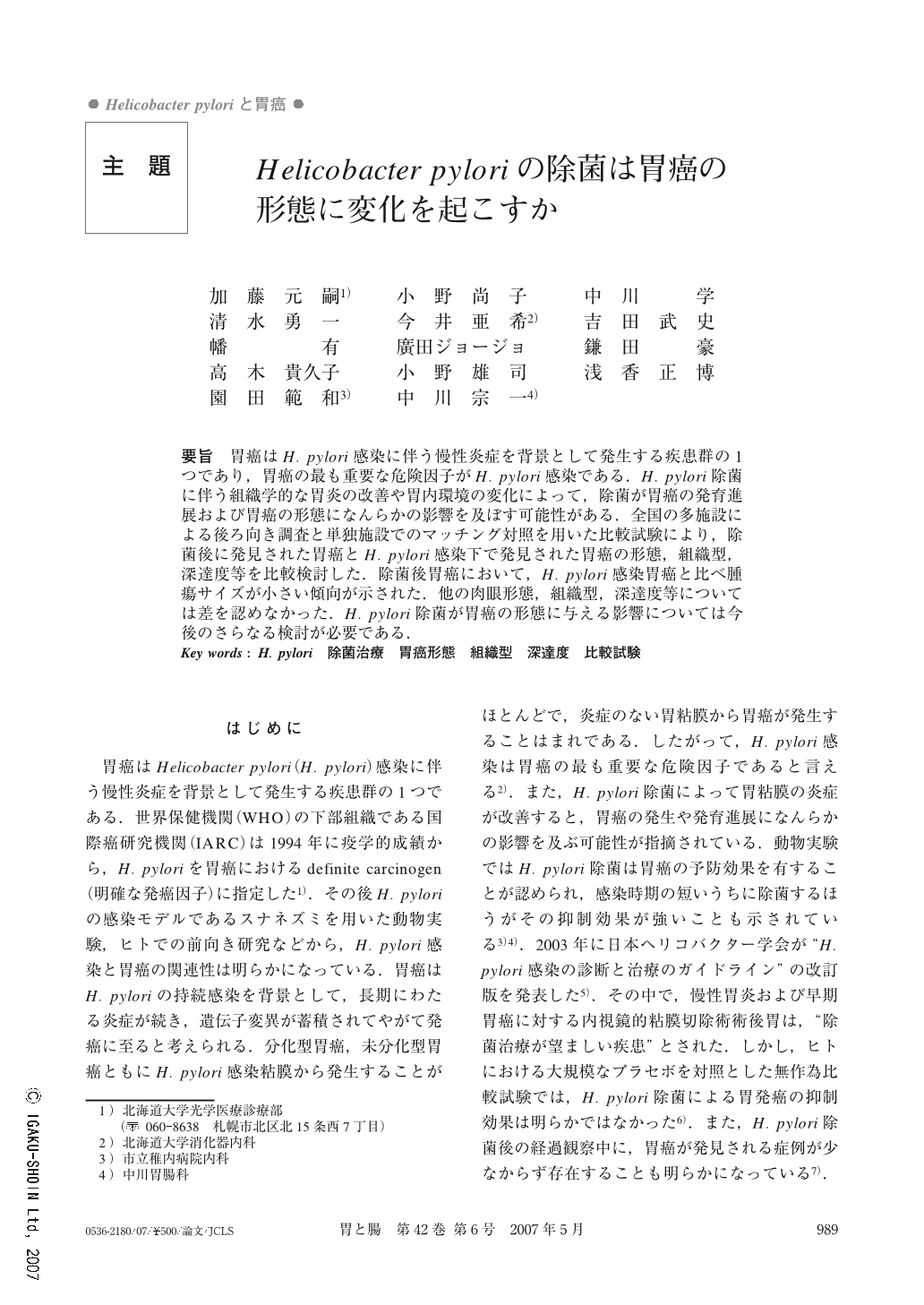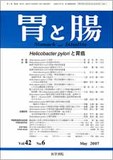Japanese
English
- 有料閲覧
- Abstract 文献概要
- 1ページ目 Look Inside
- 参考文献 Reference
要旨 胃癌はH. pylori感染に伴う慢性炎症を背景として発生する疾患群の1つであり,胃癌の最も重要な危険因子がH. pylori感染である.H. pylori除菌に伴う組織学的な胃炎の改善や胃内環境の変化によって,除菌が胃癌の発育進展および胃癌の形態になんらかの影響を及ぼす可能性がある.全国の多施設による後ろ向き調査と単独施設でのマッチング対照を用いた比較試験により,除菌後に発見された胃癌とH. pylori感染下で発見された胃癌の形態,組織型,深達度等を比較検討した.除菌後胃癌において,H. pylori感染胃癌と比べ腫瘍サイズが小さい傾向が示された.他の肉眼形態,組織型,深達度等については差を認めなかった.H. pylori除菌が胃癌の形態に与える影響については今後のさらなる検討が必要である.
Since almost all gastric cancers develop from a background of H. pylori-infected gastric mucosa, H. pylori plays an important role in gastric carcinogenesis. Eradication treatment of H. pylori induces the regression of histological gastritis and brings about changes in the stomach. There is a possibility that successful eradication of H. pylori might affect the development of gastric cancer and the morphological features of cancer. We conducted a large multi-center prospective study and a comparative study using matched controls in one institute. The characteristics of gastric cancer such as morphological features, histological type, and the depth of invasion were investigated in eradicated patients and H. pylori infected patients. There was no difference in morphological and pathological type. Only tumor size was affected. Further investigation is needed to assess the effect of H. pylori eradication on the morphological features of gastric cancer.

Copyright © 2007, Igaku-Shoin Ltd. All rights reserved.


